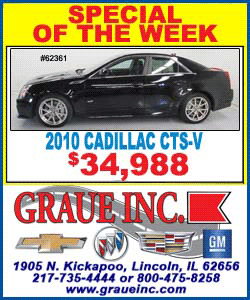|
Changes at Diageo put
focus back on Scotch
 Send a link to a friend
Send a link to a friend
 [March 31, 2017]
By Martinne Geller [March 31, 2017]
By Martinne Geller
LONDON
(Reuters) - Diageo, the world's largest spirits maker, spotted in 2015
that drinkers in the emerging middle class in Ghana and Cameroon were
keen to show off their new status by buying their own bottles of Johnnie
Walker rather than shots.
The company increased production of smaller bottles, helping to lift
Johnnie Walker sales 12 percent in Africa in the first half of its 2017
fiscal year and contributing to Diageo's first sales growth in Scotch in
over three years.
Diageo and spirits peers including Pernod Ricard and Brown-Forman were
hurt by a slowdown starting in 2013 in emerging markets where they had
found much of their growth. The world leader particularly suffered, as
its wholesalers had large stocks to run down.
Chief Executive Ivan Menezes called 2016 a "transition year" to get back
on track following changes to make Diageo more responsive, including
removing management layers and giving more power to local managers, such
as the ones in Africa who noticed the demand for smaller bottles.
"What's happened is that global and local got a lot closer," said
Stephen White, Diageo's general manager for African innovation.
"It's definitely sped things up and it's a better set-up certainly for a
market like Africa where you need a more entrepreneurial space to be
able to operate."

Diageo's half-year results in January were the strongest of Menezes'
three-year tenure, and signaled to investors that his turnaround plan
was working.
He has put a much keener focus in the business on Scotch which is made
in Scotland and accounts for more than a quarter of Diageo's sales, a
third of its profits and derives the majority of its sales in emerging
markets.
Aside from expanding the reach and improving the marketing of premium,
global brands like Johnnie Walker, the strategy for emerging markets
includes offering more lower-priced whisky brands, including VAT 69,
White Horse and Black & White.
Black & White recently became the top-selling Scotch in recession-hit
Brazil, Diageo said, following sales growth of 58 percent there in the
most recent period.
WEAK SPOTS
Still, Liberum analyst Alicia Forry downgraded the shares to "sell" in
January, noting that the improvement was already priced in. While she
acknowledged the better performance, particularly in Johnnie Walker, she
said people "should not get carried away" since other Diageo brands were
struggling.
The vodka brand Smirnoff fell 2 percent, hurt by ongoing discounting. A
spokeswoman for Diageo acknowledged that it was a tough category and
said: "There is more work to do in recruiting and re-recruiting
multi-cultural consumers as well as Gen X and baby boomers".

Beer, which represents 16 percent of Diageo's sales, was also lackluster
with flat sales. Guinness, its main beer brand, has faced increased
competition, from craft beers in North America and Europe, and cheaper
brews like Anheuser-Busch InBev's Hero and its own local brand
Satsenbrau, in the important market of Nigeria.
[to top of second column] |

Bottles of Johnnie Walker whisky move along on the production line
at the Diageo owned Shieldhall bottling plant in Glasgow, Scotland
March 24, 2011. REUTERS/David Moir/File Photo

Following the 2015 divestiture of Diageo's wine business, analysts have
speculated that Diageo could sell the beer division to focus exclusively on
spirits. Diageo has repeatedly said beer is key to its strategy in Africa, as it
provides a distribution platform for spirits.
Another weak spot for Diageo, analysts say, is its relatively small position in
bourbon whiskey, a growing market due to a resurgence of classic cocktails in
the United States where bourbon is made.
Diageo's Bulleit bourbon grew net sales 29 percent in the first half, but its
overall position remains small versus rivals Beam Suntory [BSI.UL] and
Brown-Forman. However, its Canadian Crown Royal whiskey brand has gained market
share and gives it a large foothold in the wider category of North American
whiskey which includes bourbon.
SALES CHANGE
As part of its efforts to react more quickly to trends, Diageo said in late 2013
it would change its sales focus, to monitor not only what it sells to
wholesalers, but also what they sell to retailers. This is seen as a better
measure of what people are drinking and is meant to make sales more consistent.
That change hit Diageo's sales in 2014 and 2015 as wholesale customers worked
through stocks, but Janus Capital analyst Greg Kuczynski said it should make for
a smoother business and a higher stock price.
"There's a lot of investment shops that probably turned away from a company like
Diageo because they just don't want to have exposure to the stocking and
destocking cycles which can be so painful," said Kuczynski, whose firm is a top
60 Diageo shareholder, according to Reuters data.

The
measure also gives real-time data that can speed up forecasting, decision-making
and innovation. Johnnie Walker used such sales data from the September launch of
its first limited-edition experiment, Red Rye Finish, to better allocate stock
for its second one.
It has helped cut the time it takes to get new products to market down to an
average of 34 weeks. Johnnie Walker Green Label, largely discontinued in 2012,
was brought back in 2016 in only 9 weeks, it said.
Diageo also says the business has benefited from increased investment made
possible by a "zero-based budgeting" system to help it save 500 million pounds
over three years.
The company may also be on the cusp of more changes, given the arrival in
January of a new chairman, Javier Ferran, a drinks industry and private equity
veteran.
"Companies do not change overnight, however we think Diageo could start to look
different," said Jefferies analyst Edward Mundy. He mentioned more cost cutting
and the possible sale of the beer business if needed to fund a buyout of Moet
Hennessy, of which Diageo owns a stake.
(Editing by Anna Willard)
[© 2017 Thomson Reuters. All rights
reserved.] Copyright 2017 Reuters. All rights reserved. This material may not be published,
broadcast, rewritten or redistributed. |